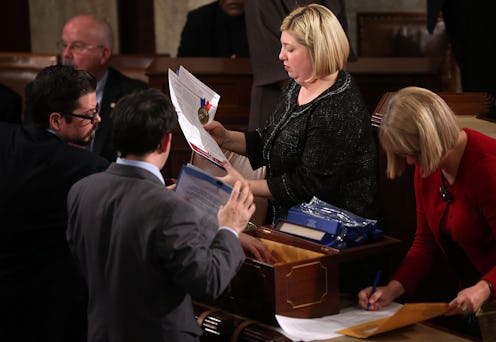News
The Electoral Voting Countdown Begins
Let’s face it: We were all lied to as children. There is no Tooth Fairy, no Santa Claus, and there sure as hell isn’t any direct democracy in this country. Even though Election Day is a distant, horrifying memory for many of us at this point, the reality is that as far as the Constitution is concerned, Donald Trump will be in the White House. But the process that will officially make Trump president doesn't begin until Dec. 19, when electors cast their votes for president and vice president when they meet in their home states.
To be clear, this date isn’t in the Constitution, just as Election Day is left vague. The first-Monday-after-the-second-Wednesday arrangement is spelled out in federal law, giving states 41 days to get all their stuff in order after their own elections. Normally, this is plenty of time, but this year, Wisconsin, Pennsylvania, and possibly Michigan are sweating the deadlines due to the recounts initiated by Green Party candidate Jill Stein. In order to satisfy federal law, these states must finalize their slate of electors by Dec. 13, six days before the electors vote.
In a normal election year, the Electoral College vote would largely be a formality, like the Queen of Great Britain inviting the chosen Prime Minister to form a government.
But this year, given Trump’s historic unpopularity and the fact that he lost the popular vote to Hillary Clinton, there’s a lot of talk about encouraging the members of the Electoral College to take the "faithless elector" route, meaning they don't cast their ballots for the candidate to whom they're technically pledged. For those hoping for an Electoral College upset, that’s the scenario they’re banking on: Get enough Republican Electors (at least 37 out of Trump’s 306) to defect and deny Trump an Electoral College victory.
But that’s only the first half of the problem. It’s highly unlikely that these electors will switch their allegiance to Clinton. Instead, whether they abstain or support another candidate, they’ll simply be denying anyone a majority of electoral votes, which will throw the selection of the president to the House of Representatives. If such a vote takes place, it will favor the Republicans — though whether they’d choose Trump is not necessarily certain (though realistically, it's pretty darn close to certain).
Yes, in any other year, nobody would think much about Dec. 19, but in this year, where so many unexpected things have happened, everyone should be paying close attention.
